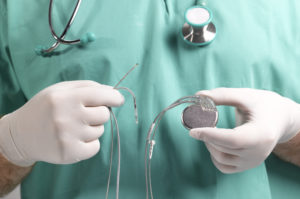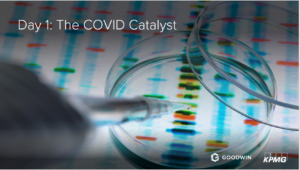 As the COVID-19 pandemic progresses and the expanded use of telehealth has appeared to stabilize over the past year according to a July report from McKinsey & Company, Federal agencies have continued the recent trend of enforcement actions and audits of telehealth providers.
As the COVID-19 pandemic progresses and the expanded use of telehealth has appeared to stabilize over the past year according to a July report from McKinsey & Company, Federal agencies have continued the recent trend of enforcement actions and audits of telehealth providers.
On September 17, 2021, the U.S. Department of Health and Human Services Office of Inspector General (HHS OIG) and U.S. Department of Justice (DOJ) announced their latest enforcement action, totaling $1.4 billion, with approximately $1.1 billion involving alleged telehealth fraud. This is the latest action taken by enforcement agencies, with a $143 million COVID-19 enforcement action announced in May 2021 and a $4.5 billion telehealth enforcement action announced in September 2020. These actions have focused in part on the use of telehealth to submit fraudulent claims to private payors as well as Federal health care programs. The May 2021 enforcement action involved fourteen defendants in seven Federal judicial districts and the September 2020 enforcement action involved over three-hundred defendants in fifty-one Federal judicial districts.
This most recent round of enforcement actions from September 2021 targeted telemedicine executives who were alleged to have paid physicians the nurse practitioners in exchange for ordering durable medical equipment, genetic testing, other diagnostic tests, and pain medications that were considered unnecessary. The government charged that items were ordered without patient interactions or minimal telephonic conversations, and that the physicians and nurse practitioners at issue had never even met or seen their patients. Additionally, in January 2021, HHS OIG announced a series of audits reviewing Medicare Part B payments to telehealth providers during the public health emergency to determine whether Medicare requirements were met. The first phase of audits focus on whether services such as evaluation and management, opioid use disorder, end-stage renal disease, and psychotherapy met Medicare requirements. The second phase includes additional audits regarding distant and originating site locations, virtual check-in services, electronic visits, remote patient monitoring, use of telehealth technology, and annual wellness visits.
While the long-term effects of Federal agency actions remain unclear, so long as telehealth is utilized at a substantial level, government agencies will likely continue to scrutinize telehealth industry practices to mitigate fraud, waste and abuse. Telehealth providers and others in the industry can decrease the likelihood and impact of being audited or charged in an enforcement action by structuring their compliance programs and operations to abide by Federal health care program requirements such as provider credentialing, sufficient medical necessity documentation, program integrity requirements and other coverage and reimbursement issues.
 Rapid advancement in life sciences technologies has made keeping up with the legal implications more important than ever. Join the Berkeley Center for Law and Technology for the 2nd BCLT Advanced Life Sciences Institute, where you will learn from the experts about cutting-edge issues impacting your life sciences practice.
Rapid advancement in life sciences technologies has made keeping up with the legal implications more important than ever. Join the Berkeley Center for Law and Technology for the 2nd BCLT Advanced Life Sciences Institute, where you will learn from the experts about cutting-edge issues impacting your life sciences practice. In global observance of Rare Disease Day, Goodwin invites you to join us for a special awareness event on March 1, 2023 in our Boston office or virtually for those attending remotely to spotlight the critical work being done to address over 7,000 rare diseases that impact more than 300 million people globally.
In global observance of Rare Disease Day, Goodwin invites you to join us for a special awareness event on March 1, 2023 in our Boston office or virtually for those attending remotely to spotlight the critical work being done to address over 7,000 rare diseases that impact more than 300 million people globally. During the COVID-19 public health emergency, the United States Food and Drug Administration (FDA) has issued hundreds of Emergency Use Authorizations (EUAs) and numerous enforcement policies to facilitate the availability of important medical devices. On December 23, 2021, FDA published two draft guidances setting forth the Agency’s proposed process for transitioning the multitude of devices brought to market under these circumstances to full compliance with FDA requirements:
During the COVID-19 public health emergency, the United States Food and Drug Administration (FDA) has issued hundreds of Emergency Use Authorizations (EUAs) and numerous enforcement policies to facilitate the availability of important medical devices. On December 23, 2021, FDA published two draft guidances setting forth the Agency’s proposed process for transitioning the multitude of devices brought to market under these circumstances to full compliance with FDA requirements: As the COVID-19 pandemic progresses and the expanded use of telehealth has appeared to stabilize over the past year according to a
As the COVID-19 pandemic progresses and the expanded use of telehealth has appeared to stabilize over the past year according to a  Goodwin’s 2nd Annual Goodwin + KPMG @ JPMorgan Symposium kicked off Day Two of our Symposium with an overview of the effects of the pandemic on the biopharma market by Dale Raine, Managing Director and Co-Head of the European Healthcare Investment Banking at Lazard in conversation with Goodwin Life Sciences Corporate partner, Graham Defries. This chat was followed by a panel discussing global life sciences outlook, partnerships and M&A opportunities, and whether Europe will continue to be a focus for 2021 and beyond. The Symposium wrapped up with a fireside chat featuring the Carl Hansen, CEO and Tryn Stimart, CLO of AbCellera in conversation with Goodwin Life Sciences partner Deepa Rich, discussing drug discovery and the accelerated adoption of AI and machine learning in our new reality, and their path to one of the largest IPOs in biotech history.
Goodwin’s 2nd Annual Goodwin + KPMG @ JPMorgan Symposium kicked off Day Two of our Symposium with an overview of the effects of the pandemic on the biopharma market by Dale Raine, Managing Director and Co-Head of the European Healthcare Investment Banking at Lazard in conversation with Goodwin Life Sciences Corporate partner, Graham Defries. This chat was followed by a panel discussing global life sciences outlook, partnerships and M&A opportunities, and whether Europe will continue to be a focus for 2021 and beyond. The Symposium wrapped up with a fireside chat featuring the Carl Hansen, CEO and Tryn Stimart, CLO of AbCellera in conversation with Goodwin Life Sciences partner Deepa Rich, discussing drug discovery and the accelerated adoption of AI and machine learning in our new reality, and their path to one of the largest IPOs in biotech history. Goodwin held the 2nd Annual Goodwin +KPMG @ JPMorgan Symposium on Wednesday, January 27th and Thursday, January 28th. The Symposium kicked off with industry luminary, Noubar Afeyan, Chairman and Co-Founder of Moderna sitting down for a fireside chat with Vice Chairman, Global Chair of M+A and Goodwin partner, Stuart Cable.
Goodwin held the 2nd Annual Goodwin +KPMG @ JPMorgan Symposium on Wednesday, January 27th and Thursday, January 28th. The Symposium kicked off with industry luminary, Noubar Afeyan, Chairman and Co-Founder of Moderna sitting down for a fireside chat with Vice Chairman, Global Chair of M+A and Goodwin partner, Stuart Cable.